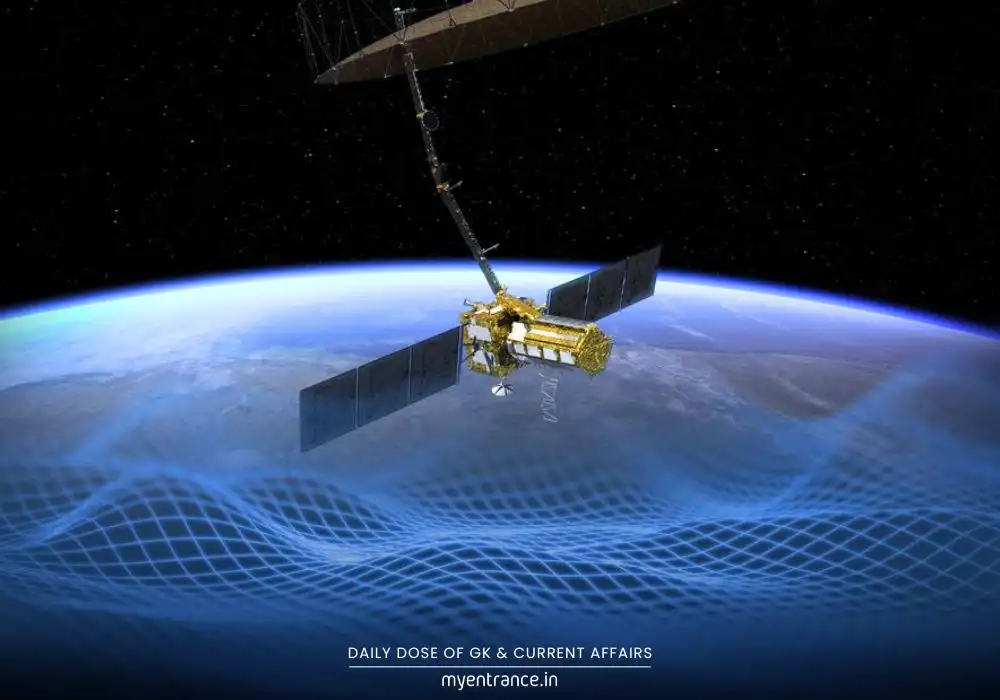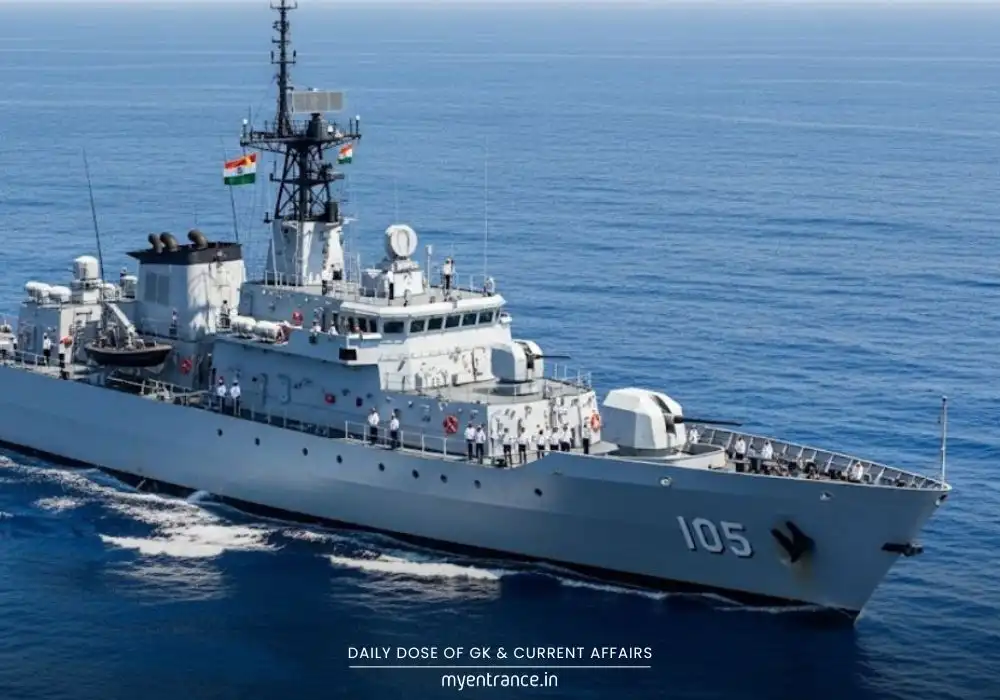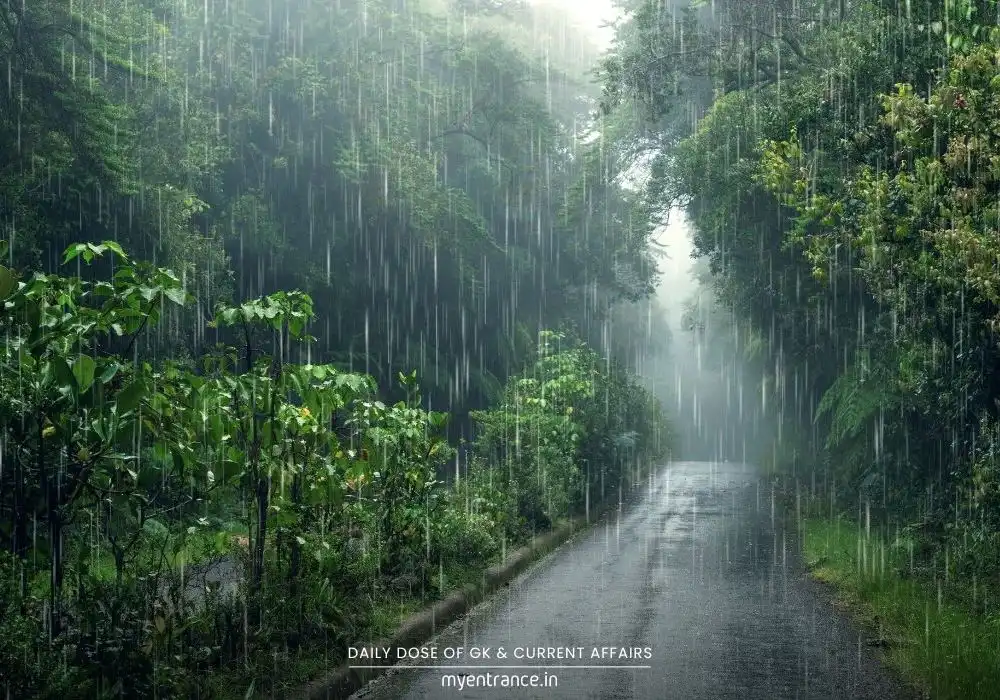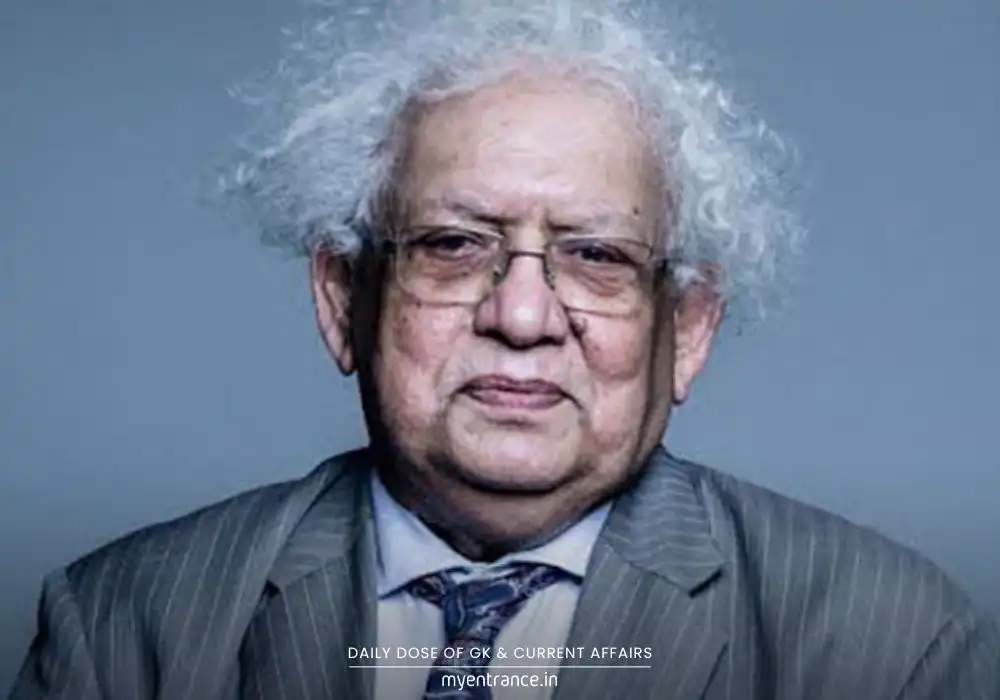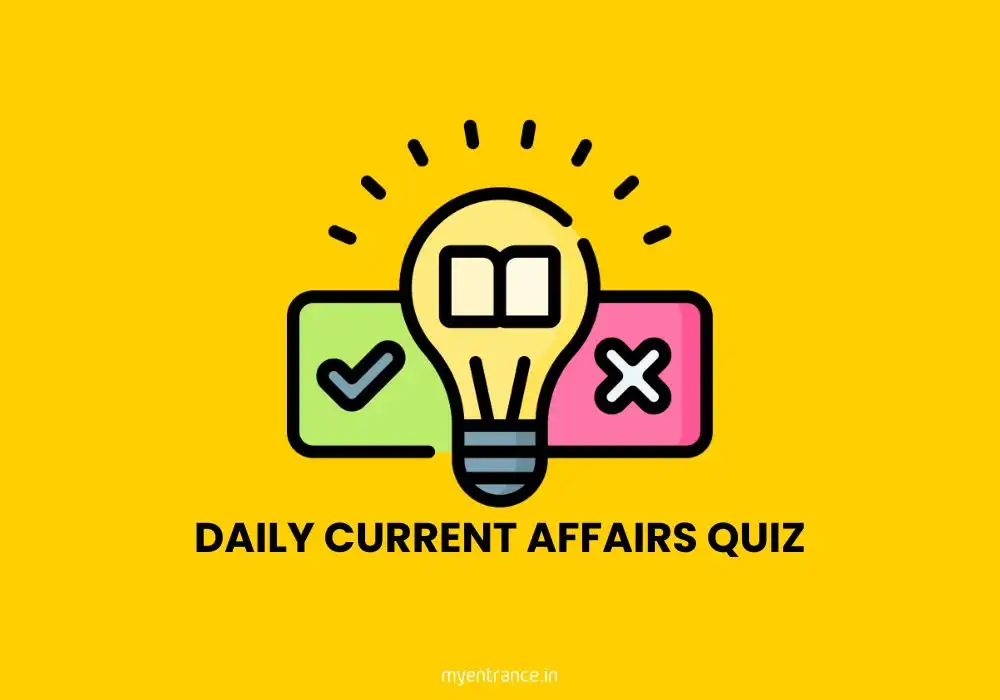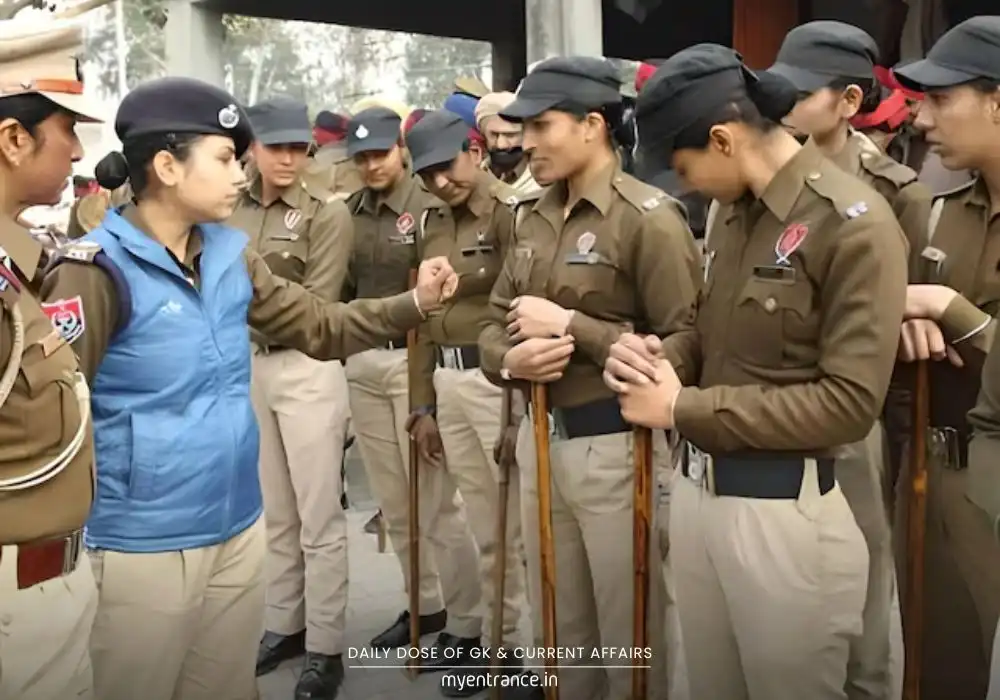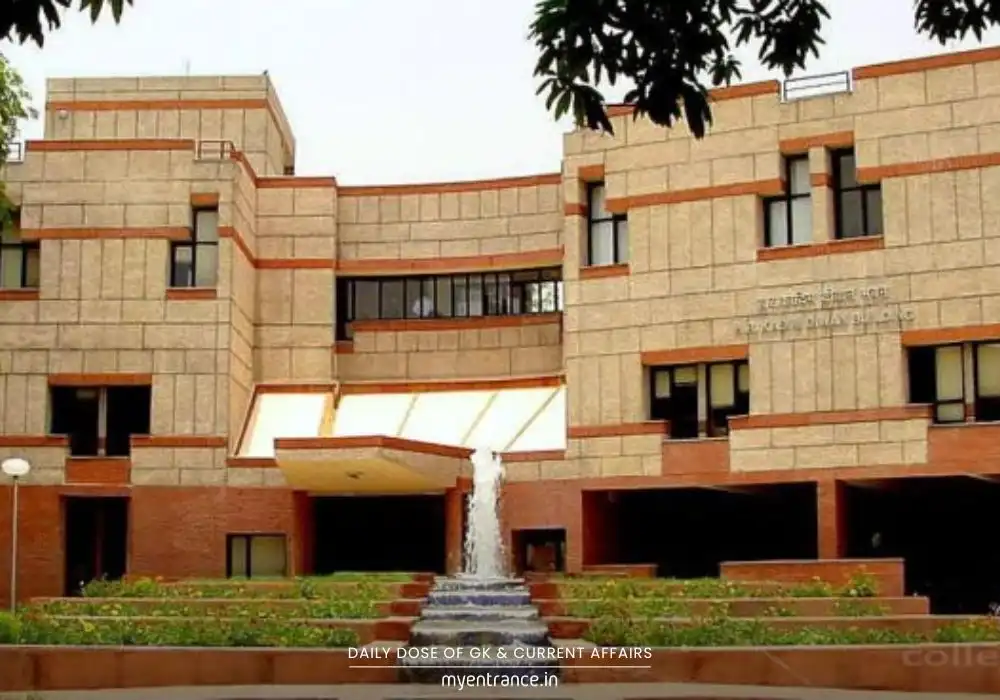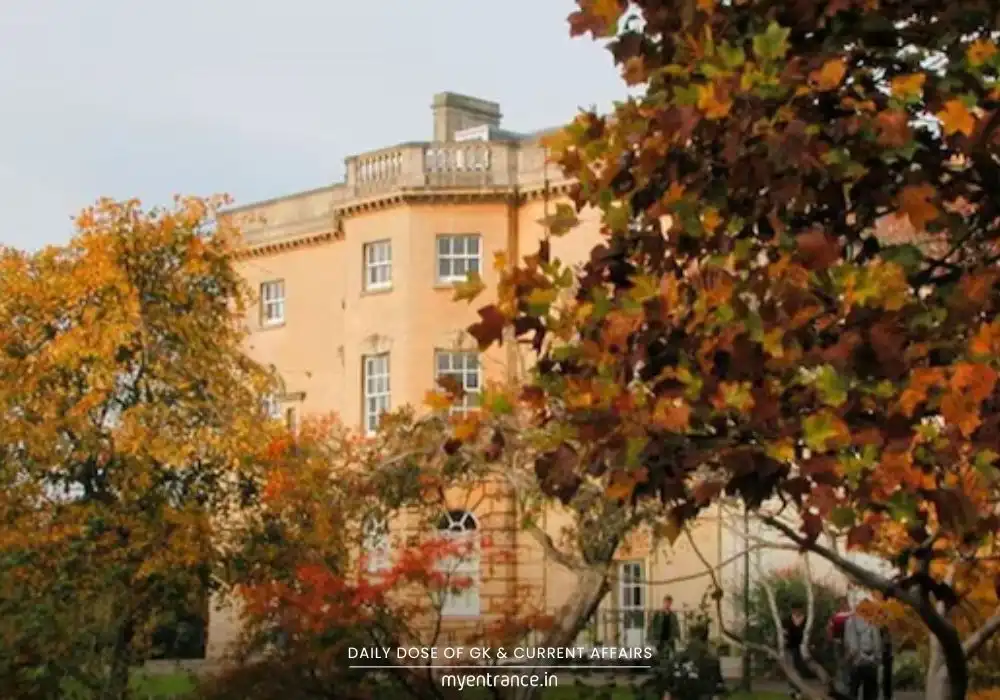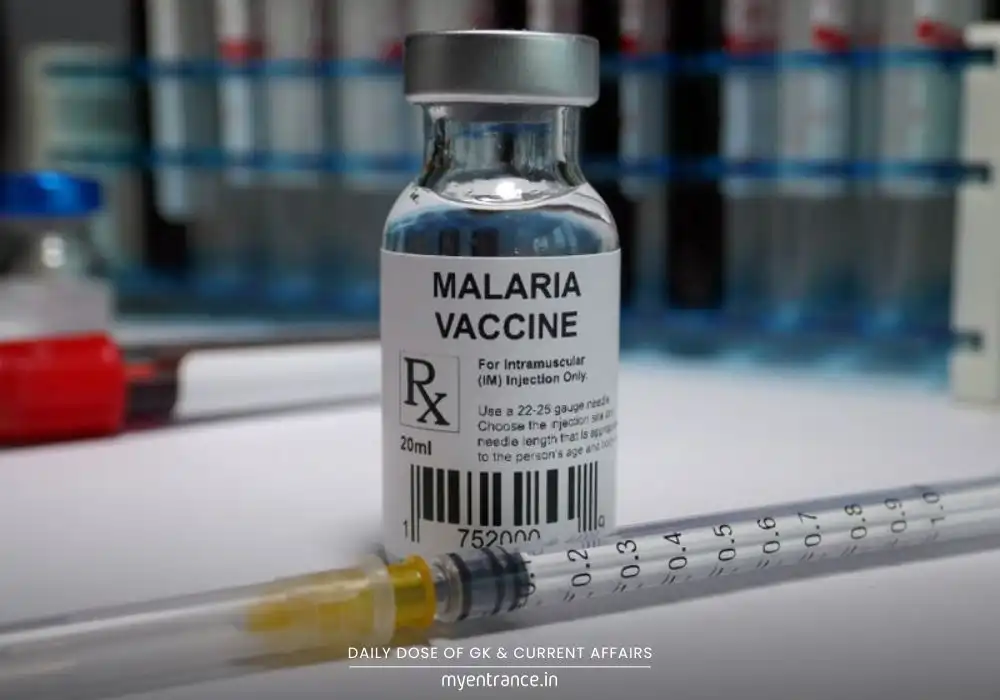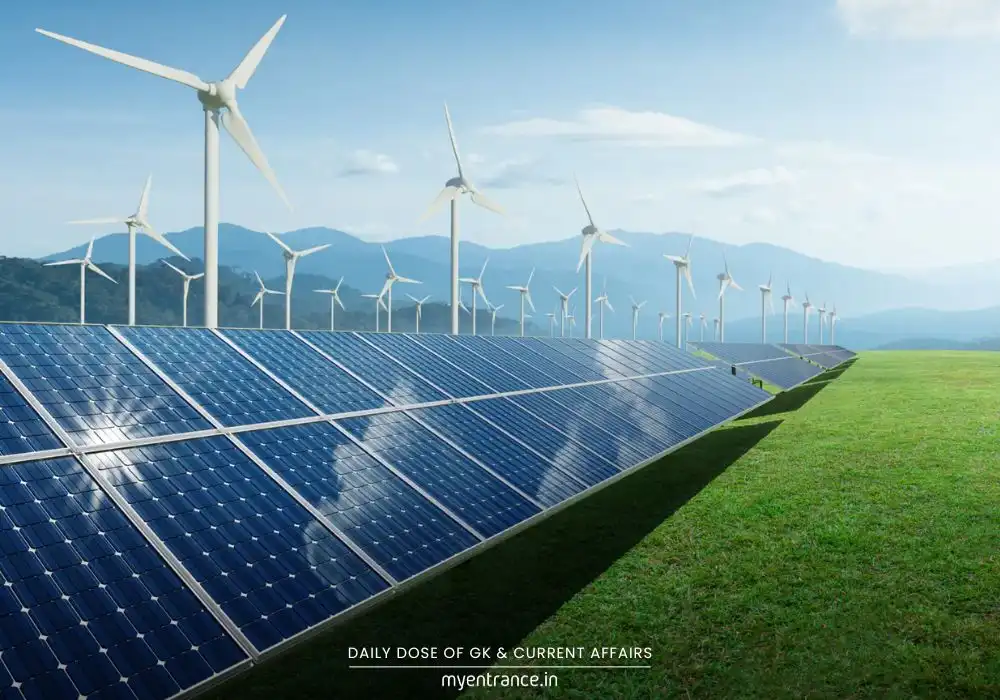Translate Language
India & Maldives Reset Ties: What’s Behind Modi-Muizzu’s Sudden Thaw?
In a major diplomatic turnaround, India has extended a ₹4,850-crore line of credit to the Maldives, signalling renewed trust. PM Modi and President Muizzu also agreed to fast-track a free trade deal and resume direct flights, easing recent tensions. This strategic pivot holds key lessons for UPSC aspirants.
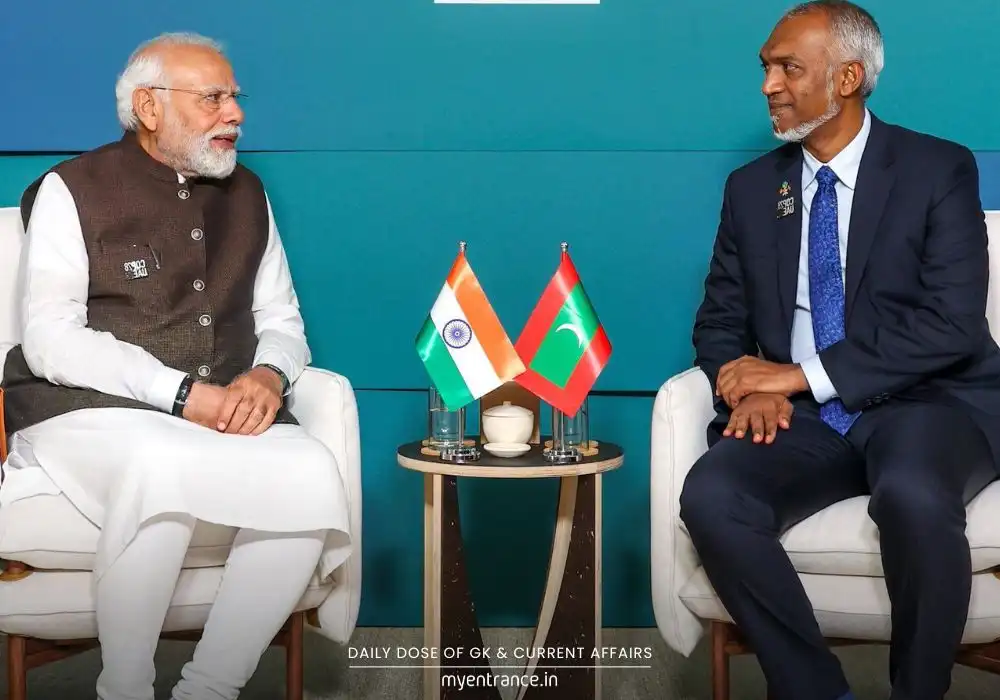
Modi, Muizzu Mark Turnaround in India-Maldives Ties
Just months after strained relations, India and the Maldives are scripting a surprising comeback. During President Mohamed Muizzu’s July 2025 visit to Delhi, PM Narendra Modi announced a ₹4,850-crore line of credit for infrastructure projects—a clear signal that both nations are prioritizing reconciliation.
Why the sudden shift? Muizzu, who earlier pushed an “India-out” campaign demanding reduced Indian military presence, now calls India a “key partner.” The two leaders agreed to:
Launch negotiations for a bilateral free trade agreement (FTA).
Restore direct flights to boost Maldivian tourism (where Indians are top visitors).
Deepen defence collaboration, including India gifting 72 heavy vehicles to Maldives’ military.
Four MoUs were signed covering fisheries, digital solutions, and community projects. Modi even inaugurated Indian-funded housing and drainage initiatives in Addu, stressing that “peace in the Indian Ocean is our shared goal.”
Why Aspirants Should Take Note:
Geostrategy: The Maldives sits just 70 nautical miles from India, guarding vital sea lanes. Its stability directly impacts India’s maritime security.
Policy Shifts: The thaw validates India’s “Neighbourhood First” doctrine, proving diplomacy can overcome friction.
Exam Relevance: Covers UPSC Prelims (current affairs) and Mains GS-II (bilateral dynamics/Indian Ocean security).
The “India-out” campaign’s fade reflects pragmatism. As Foreign Secretary Vikram Misri noted, the FTA talks aim for rapid closure—hinting both sides want visible wins.
Key Q&As for Exam Prep:
Q1: Why is the Maldives strategically vital for India?
A: Its location astride critical Indian Ocean shipping routes (like the 8° N channel) makes it essential for maritime security, trade monitoring, and countering regional threats.
Q2: What triggered recent India-Maldives tensions?
A: Muizzu’s 2023 “India-out” campaign demanded withdrawal of Indian troops and criticized defence cooperation, straining ties. His current pivot marks a diplomatic reset.
Q3: How does SAGAR differ from MAHASAGAR?
A: SAGAR (Security and Growth for All) focuses on rule-based Indo-Pacific cooperation. MAHASAGAR (Mutual & Holistic Advancement) expands this to include sustainable development and regional capacity-building.
Q4: Name 3 agreements signed during Muizzu’s visit.
A:
MoU on fisheries/aquaculture cooperation.
Deal to share India’s digital governance solutions.
Agreement on defence vehicle transfers (72 heavy vehicles gifted).
Q5: How does this align with India’s ‘Neighbourhood First’ policy?
A: The policy prioritizes ties with immediate neighbors. The credit line, FTA talks, and infrastructure aid demonstrate India’s commitment to supporting Maldives’ economy and security—countering Chinese influence.
Get 3 Months Free Access for SSC, PSC, NIFT & NID
Boost your exam prep!
Use offer code WELCOME28 to get 3 months free subscription. Start preparing today!
